45 reading food labels for cholesterol
How to Read the Nutrition Facts Label on Packaged Foods - WebMD Limit salt to 2,300 milligrams (about 1 teaspoon) daily. If you have high blood pressure, kidney disease, or diabetes, or are African-American or older than 51, your daily limit is lower: 1,500... › en › healthy-livingUnderstanding Ingredients on Food Labels | American Heart ... There are many terms used for sugar on food labels. You might see sugar listed as the fourth ingredient in a product and think it's not so bad. But sugar can also be listed as high-fructose corn syrup or corn syrup, agave nectar, barley malt syrup or dehydrated cane juice, to name just a few. Read more about sugar and sweeteners.
How does reading food labels benefit? - Heimduo The following is a quick guide to reading the Nutrition Facts label. Step 1: Start with the Serving Size. Step 2: Check Out the Total Calories. Step 3: Let the Percent Daily Values Be a Guide. Step 4: Check Out the Nutrition Terms. Step 5: Choose Low in Saturated Fat, Added Sugars and Sodium.
Reading food labels for cholesterol
Reading Food Labels for Cholesterol. DR. NIRMAL JOSHI MD 1Drop of ... How to read food labels for cholesterol? This video describes how to read food labels specifically related to cholesterol.Please note that I have done my bes... › en › healthy-livingTrans Fats | American Heart Association Mar 23, 2017 · The primary dietary source for trans fats in processed food is “partially hydrogenated oils." Look for them on the ingredient list on food packages. In November 2013, the U.S. Food and Drug Administration (FDA) made a preliminary determination that partially hydrogenated oils are no longer Generally Recognized as Safe (GRAS) in human food. diabetes.org › reading-food-labelsReading Food Labels | ADA - American Diabetes Association Understanding Food Labels It's time to decode those food claims. Trying to figure out nutritional information on labels and packaging isn't easy. The good news is that we can help. Untangle packaging claims. If you get tripped up on food content claims, you're not alone. Fat free vs. low fat vs. reduced fat. Low cholesterol vs. reduced cholesterol.
Reading food labels for cholesterol. › nutrition › how-to-read-food-labelsHow to Read Food Labels Without Being Tricked - Healthline Aug 19, 2020 · Reading labels can be tricky. Consumers are more health-conscious than ever, so some food manufacturers use misleading tricks to convince people to buy highly processed and unhealthy products. › food › 16-most-misleading-food-labelsMisleading Nutrition and Food Labels - Health Jun 07, 2012 · Cholesterol-free products must contain less than 2 mg per serving while low-cholesterol products contain 20 mg or less per serving. Foods that say reduced or less cholesterol need to have at least ... hgic.clemson.edu › food-labels-fat-cholesterolFood Labels: Fat & Cholesterol | Home & Garden Information Center Limit these sources of unhealthy fat and cholesterol in the list of ingredients: animal fat (beef, ham, pork, bacon, lamb, chicken, turkey), lard, hardened fat or oil, egg and egg-yolk solids, cream, butter, whole-milk solids, palm oil, palm kernel oil, hydrogenated vegetable oil, vegetable shortening, coconut, coconut oil, and cocoa butter. How to Read Food Labels : Food Network | Food Network The percent of the Daily Value that is listed on the upper portion of the food label is yet another way to gauge how much saturated fat and cholesterol are in the foods that you buy and eat. If a ...
Understanding Food Nutrition Labels | American Heart Association 1 - Start with the serving information at the top. This will tell you the size of a single serving and the total number of servings per container (package). 2 - Next, check total calories per serving and container. Pay attention to the calories per serving and how many calories you're really consuming if you eat the whole package. Easy Guide to Understanding Food Labels When You Have High Cholesterol ... This means that your food may contain trans-fat even if the food label says 0 gram. Therefore it's important to check the ingredient list (more on this later). Cholesterol guidelines currently recommend having not more than 300 milligrams of cholesterol per day, and if you have heart disease, aim for less than 200 milligrams per day. 2. How To Read Nutrition Labels - Mayo Clinic Diet The % Daily Value (DV) tells you how much a nutrient in a serving of food contributes to a daily diet. 2,000 calories a day is used for general nutrition advice. Low is 5% or less. Aim for low in saturated fat, trans fat, cholesterol, sodium, and added sugars. High is 20% or more. Aim high in vitamins, minerals and dietary fiber. 4. Reading food labels: Tips if you have diabetes - Mayo Clinic Look for foods with fats, cholesterol and sodium on the low end of the Daily Value; keep fiber, vitamins and minerals on the high end. If your doctor or registered dietitian recommends more or less than 2,000 calories a day, you may need to adjust the percentage accordingly — or simply use the percentage as a general frame of reference.
Reading Food Labels - Women's Heart Foods with soluble fiber can help to lower blood cholesterol. Aim for 25-30 grams of fiber a day, 1/4 of which should consist of soluble fiber and 3/4 from insoluble fiber. Soluble fiber is found primarily in oats, beans, fruits and vegetables. Read the food label for content of both soluble and insoluble fiber. How to Understand and Use the Nutrition Facts Label | FDA Dietary fiber, vitamin D, calcium, iron ad potassium are nutrients on the label that Americans generally do not get the recommended amount of. They are identified as nutrients to get more of.... How to Read Food Labels for a Heart-Healthy Diet Partially hydrogenated oil Omega-3 fatty acid Olive oil Butter What's important to know about the first ingredient listed on a label? It's the healthiest. It's in the largest quantity. It's first due to alphabetical order. What words should I look out for that mean sugar? High-fructose corn syrup Agave nectar Dehydrated cane juice All of the above › article › 380166-why-is-readingWhy Is Reading Food Labels Important? | livestrong Understanding what's in the foods you eat helps you make healthier choices. Checking food labels also makes it easy for you to compare the nutrient content of different options. A healthy diet is crucial throughout your lifetime and paying attention to nutrition labels is a good step toward improving your overall diet.
How to Tell if Foods Are Low or High Cholesterol - Verywell Health On the label, for most nutrients, you will see percentages marked as "% of daily value." The daily value—or daily reference value—is the U.S. Department of Agriculture's (USDA) term for daily nutritional requirements based on a 2,000-calorie diet. 4 For cholesterol, the percentage is based on a daily limit of 300 mg. 5 Foods Without Labels
How to read food labels: MedlinePlus Medical Encyclopedia Whole-grain breads, fruits and vegetables, and beans and legumes are high in fiber. Check the total fat in 1 serving. Pay special attention to the amount of saturated fat in 1 serving. Choose foods that are low in saturated fat. For example, drink skim or 1% milk instead of 2% or whole milk. Skim milk has only a trace of saturated fat.
How To Read Cholesterol Labels - HealthyCholesterolClub.com If 1 serving of a food has 120 mg of sodium, it can technically be labeled as a low sodium food. However, if you eat 3 servings, triple that number, and now youre consuming 360 mg of sodium, which no longer falls into the low sodium category . Bottom line: When youre reading your labels, always consider the servings.
Reading Food Labels | SeekHealthZ The food label shows both the amount of fat in grams (g) and the percent daily value per serving. This type of fat increases the amount of blood cholesterol. If you eat 2,000 calories each day, you should eat less than 13 g of saturated fat each day. Trans fat. The food label shows the number of grams (g) per serving.
How To Read Food and Beverage Labels - National Institute on Aging At the top of the Nutrition Facts label, you will find the total number of servings in the container and the food or beverage's serving size. The serving size on the label is based on the amount of food that people may typically eat at one time and is not a recommendation of how much to eat. Read more about serving and portion sizes.
Making Sense of Food Labels | ADA - American Diabetes Association Trying to figure out nutritional information on labels and packaging isn't easy. The good news is that we can help. These food labels are especially helpful if you use carb counting to plan your meals! If you get tripped up on food content claims, you're not alone. Fat free vs. low fat vs. reduced fat. Low cholesterol vs. reduced cholesterol.
diabetes.org › reading-food-labelsReading Food Labels | ADA - American Diabetes Association Understanding Food Labels It's time to decode those food claims. Trying to figure out nutritional information on labels and packaging isn't easy. The good news is that we can help. Untangle packaging claims. If you get tripped up on food content claims, you're not alone. Fat free vs. low fat vs. reduced fat. Low cholesterol vs. reduced cholesterol.
› en › healthy-livingTrans Fats | American Heart Association Mar 23, 2017 · The primary dietary source for trans fats in processed food is “partially hydrogenated oils." Look for them on the ingredient list on food packages. In November 2013, the U.S. Food and Drug Administration (FDA) made a preliminary determination that partially hydrogenated oils are no longer Generally Recognized as Safe (GRAS) in human food.
Reading Food Labels for Cholesterol. DR. NIRMAL JOSHI MD 1Drop of ... How to read food labels for cholesterol? This video describes how to read food labels specifically related to cholesterol.Please note that I have done my bes...
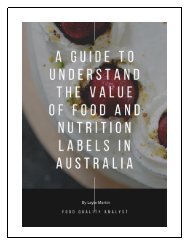
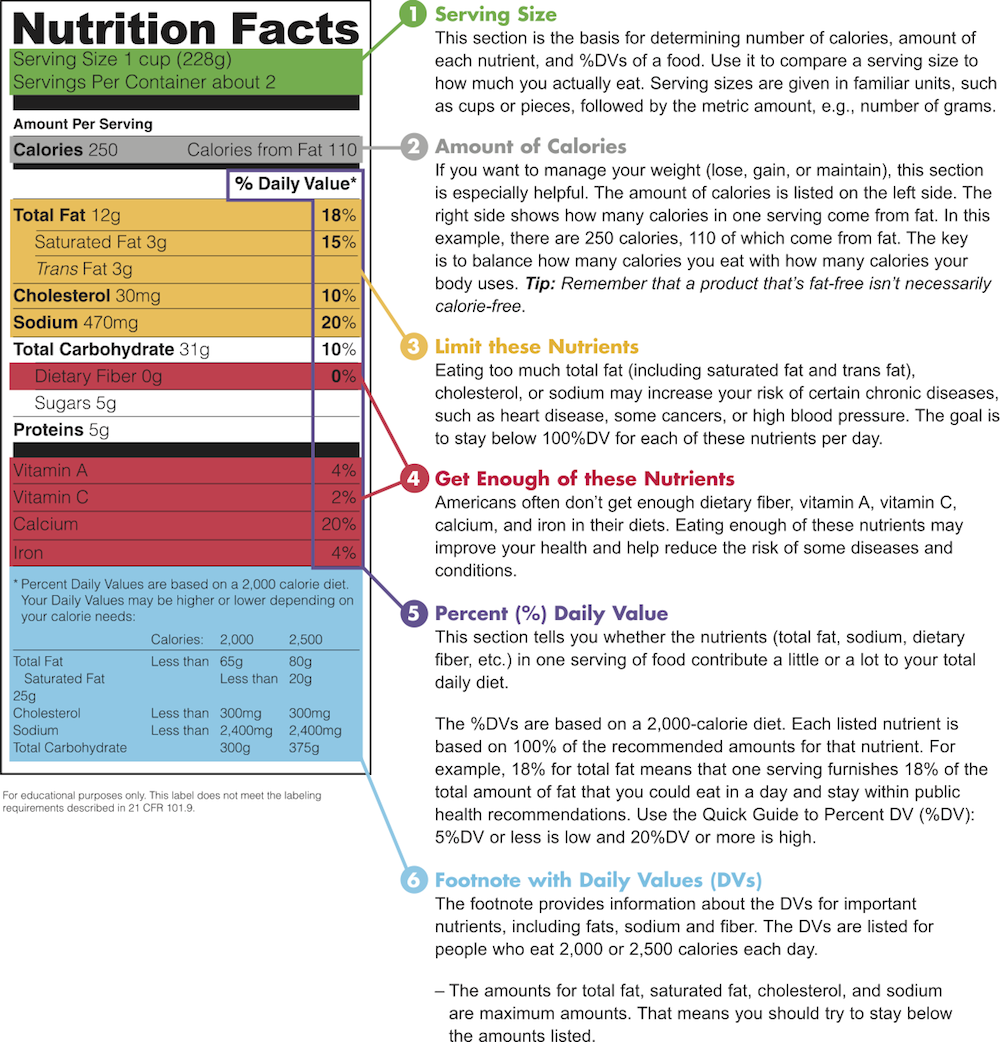

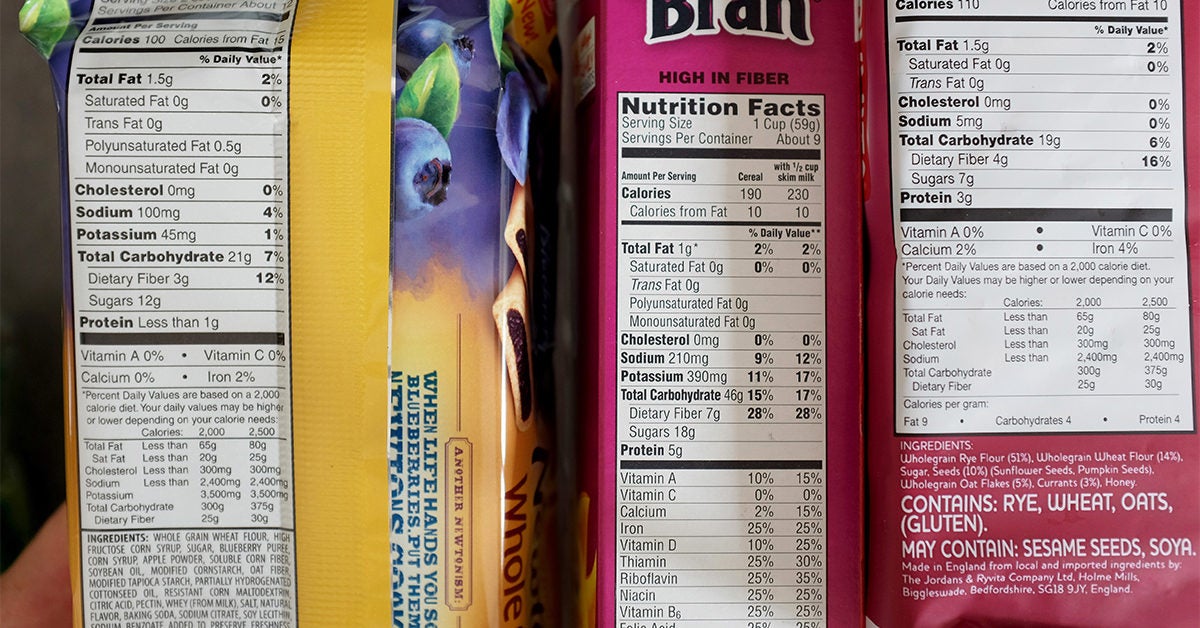


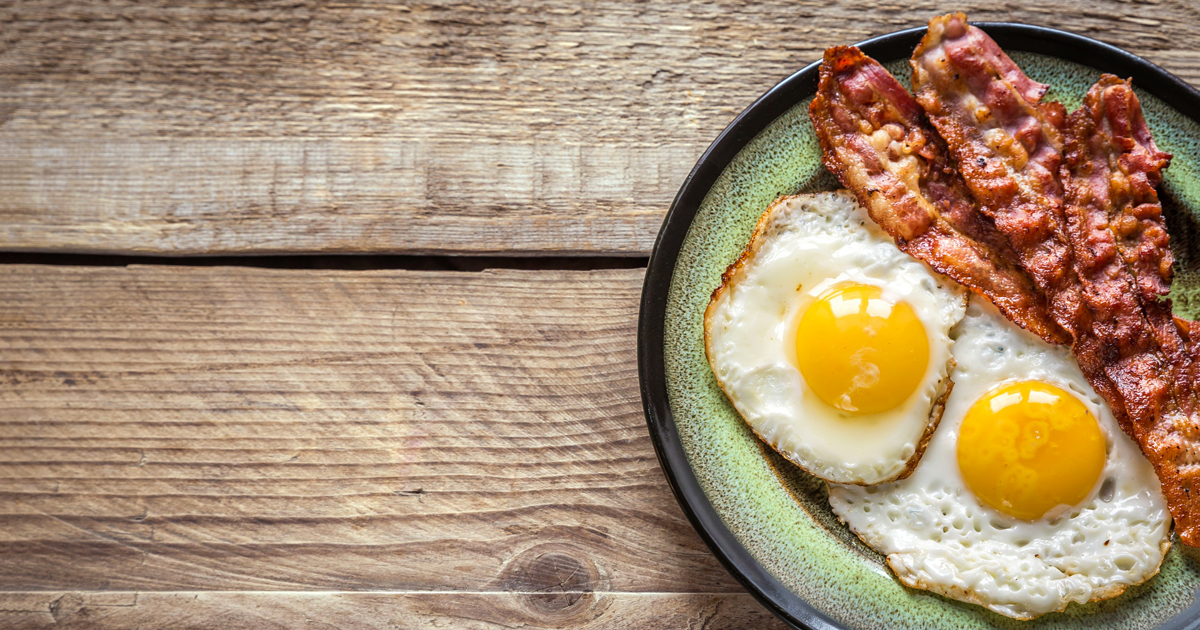

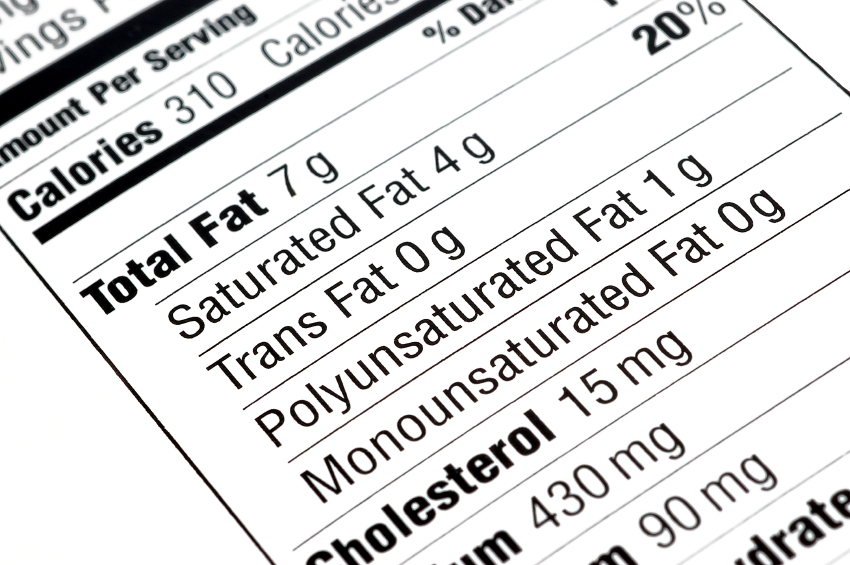

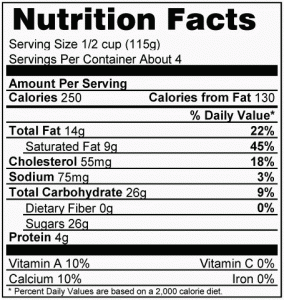
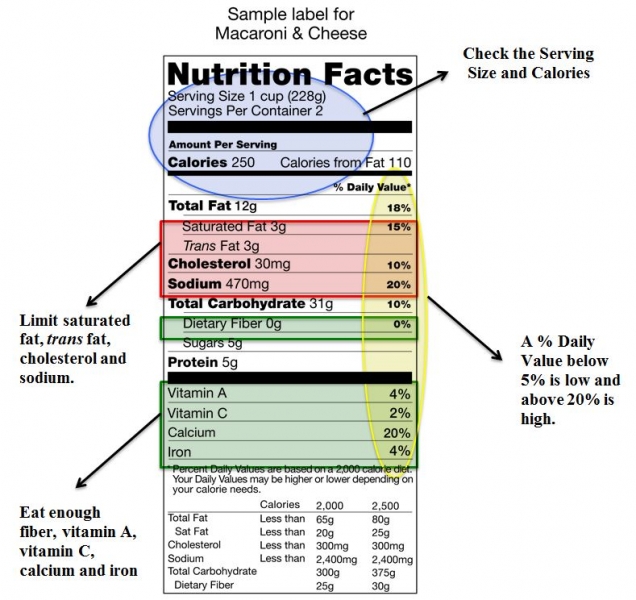







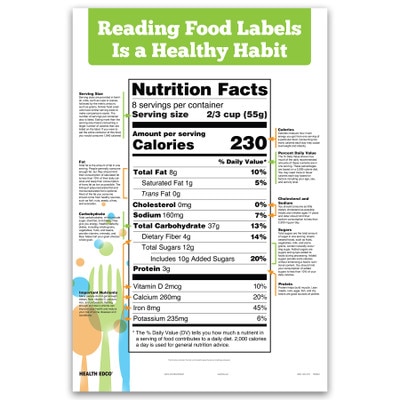
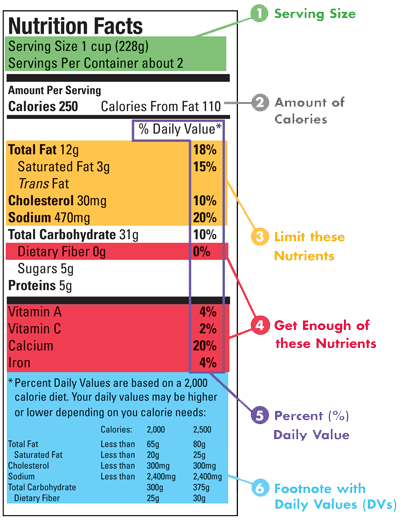
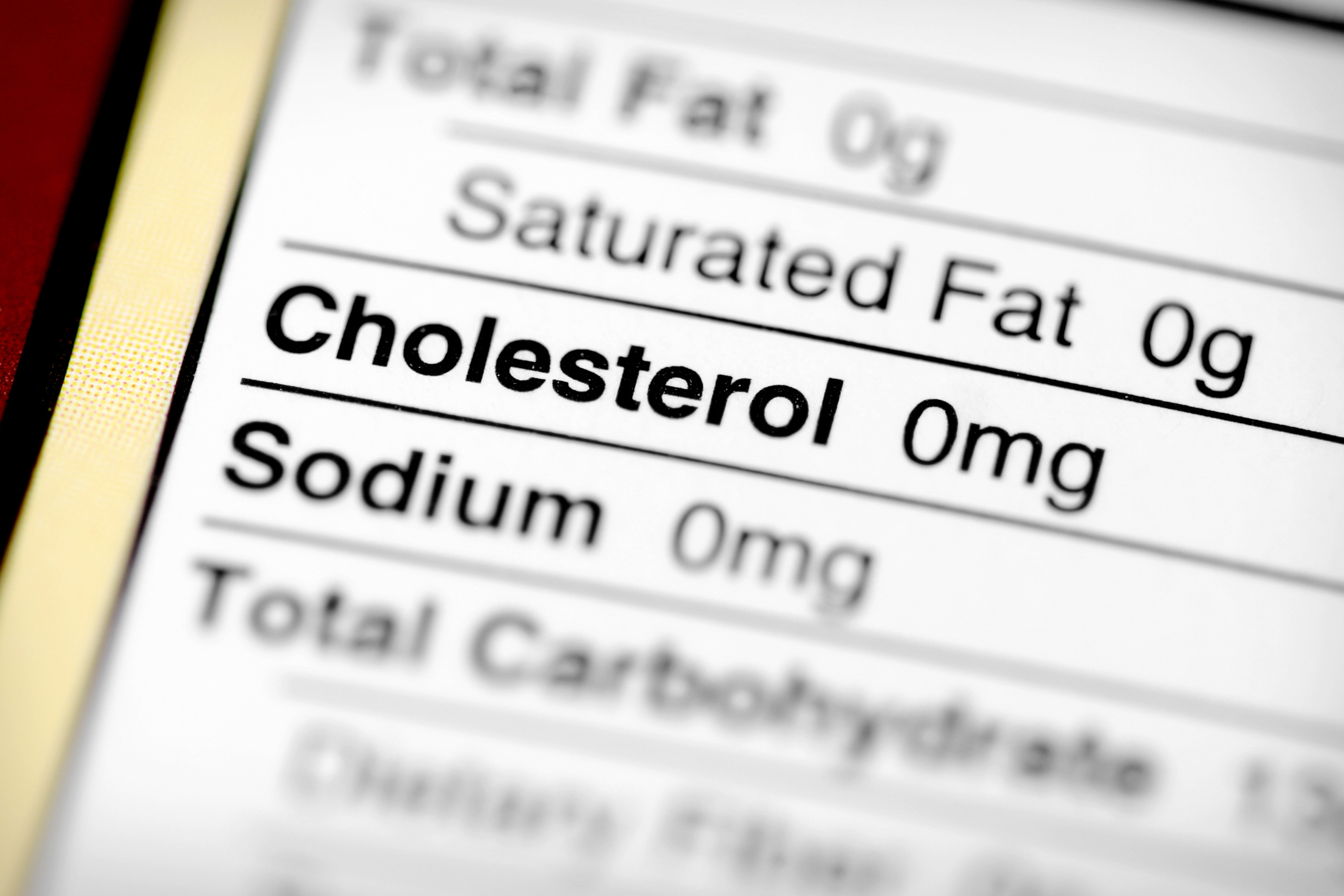








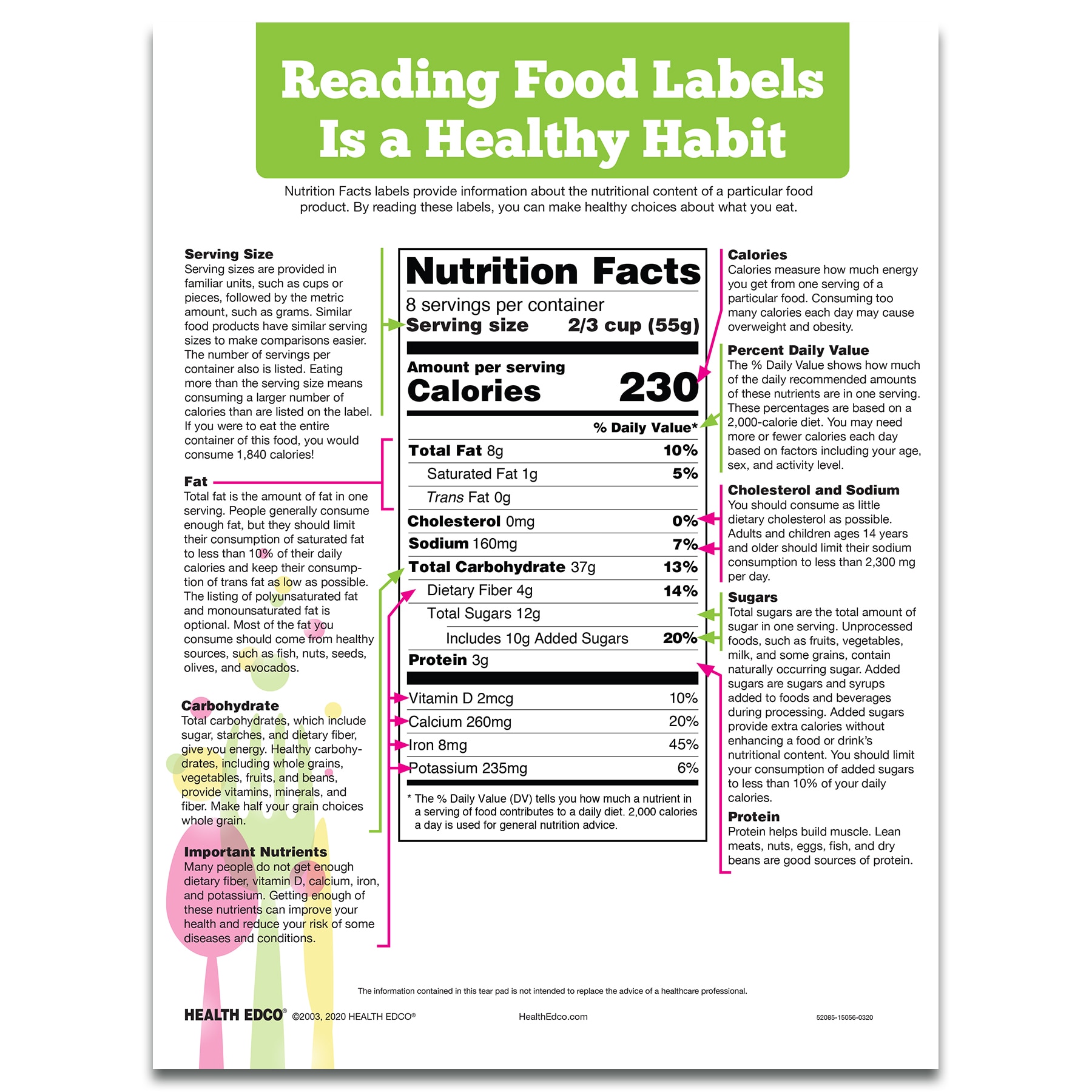


Post a Comment for "45 reading food labels for cholesterol"